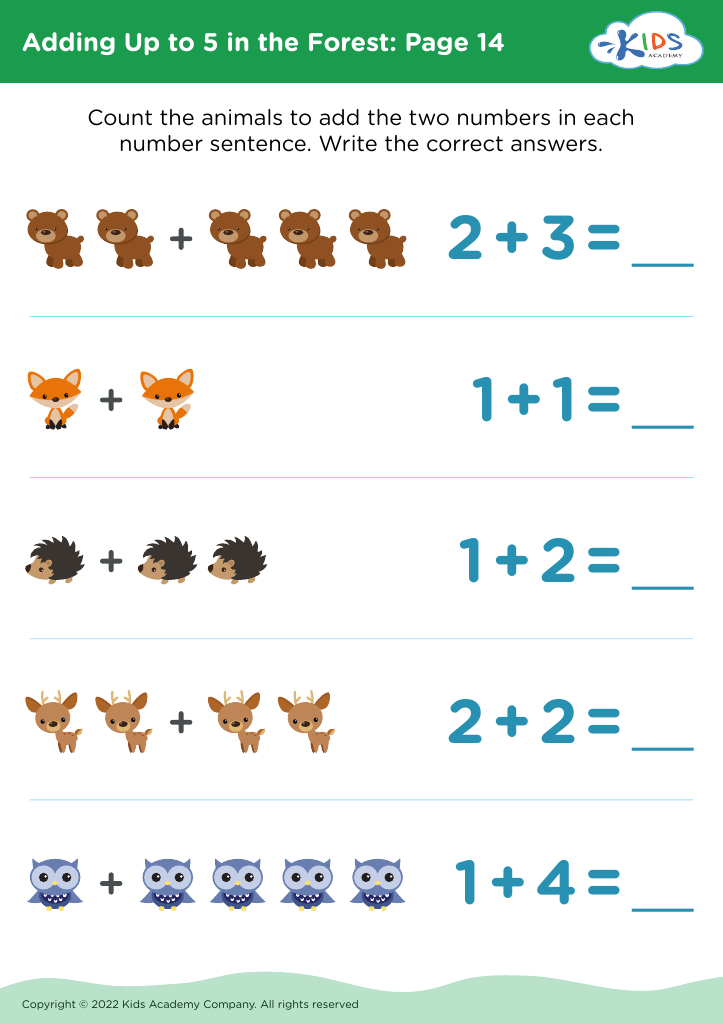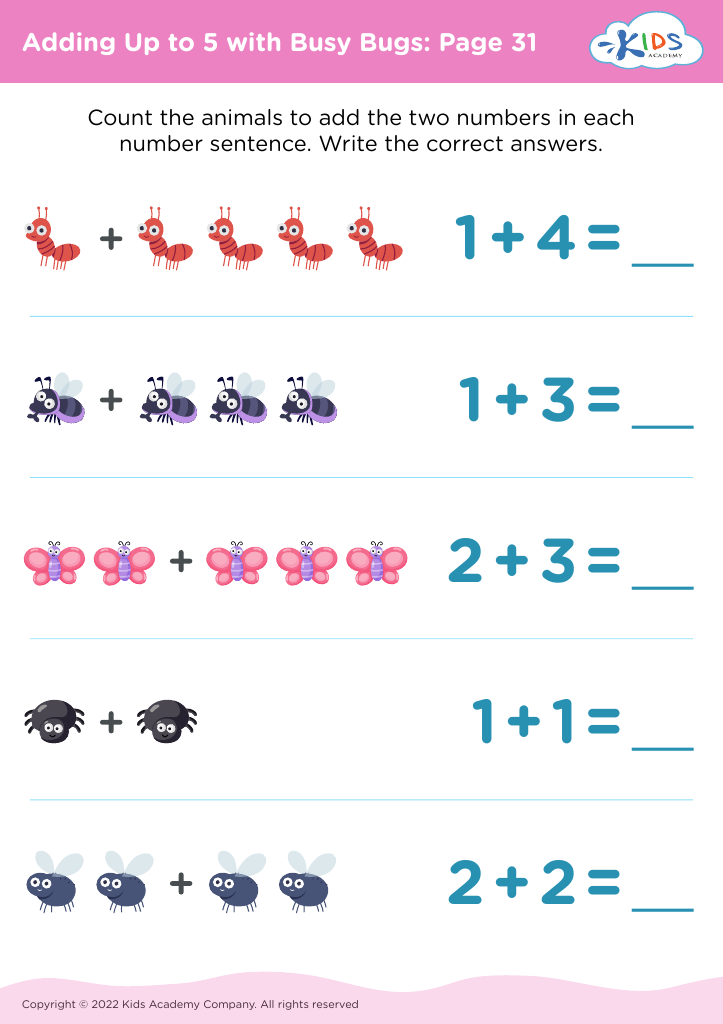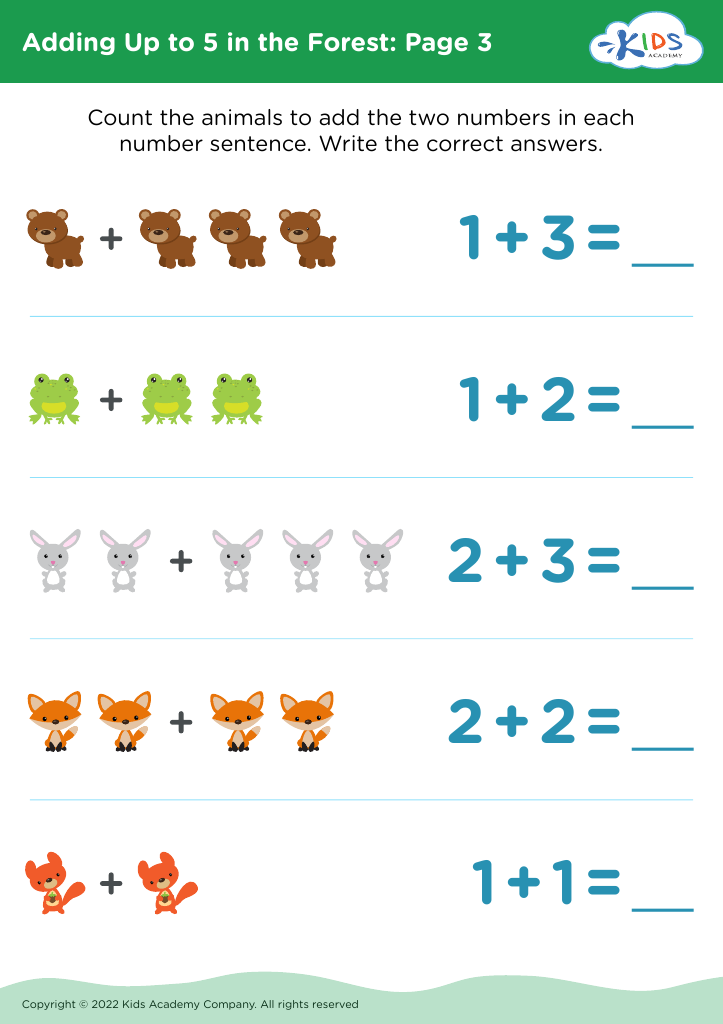Fine motor skills (drawing lines) Addition Worksheets for Ages 4-7
3 filtered results
-
From - To
Enhance your child's fine motor skills with our engaging "Drawing Lines Addition Worksheets" designed for ages 4-7! These worksheets combine early math concepts with fun drawing activities, encouraging students to practice their fine motor control while mastering addition. Children will connect lines and shapes, helping develop hand-eye coordination and pencil grip. Each worksheet promotes active learning, making math enjoyable as kids solve addition problems. Perfect for preschool and kindergarten classrooms or at-home learning, these worksheets provide a creative approach to building essential skills. Discover the joy of learning through play with our carefully curated activities that foster both math abilities and fine motor skills!
Fine motor skills, such as drawing lines and engaging in activities like addition, are essential for children ages 4-7 as they play a critical role in their overall development. Mastering these skills supports not only their physical coordination before entering primary school but also enhances their cognitive abilities.
Drawing lines is a foundational skill that helps children develop hand-eye coordination and dexterity, which are crucial for everyday tasks like writing, cutting, and coloring. These activities foster concentration and patience, important traits for academic success.
In terms of addition, engaging children with simple math activities during these formative years not only boosts their numeracy skills but also encourages logical thinking and problem-solving. Early exposure to mathematical concepts enhances their confidence in handling numbers as they progress through school, making them more open to tackling complex ideas later on.
Support for fine motor development and basic arithmetic gives children a sense of accomplishment, motivating them to explore and learn further. By facilitating these foundational skills, parents and teachers help cultivate a holistic learning environment, setting the stage for future academic growth and fostering a lifelong love of learning. Engaging children in fun, interactive ways enhances these skills, benefiting their growth and education.























